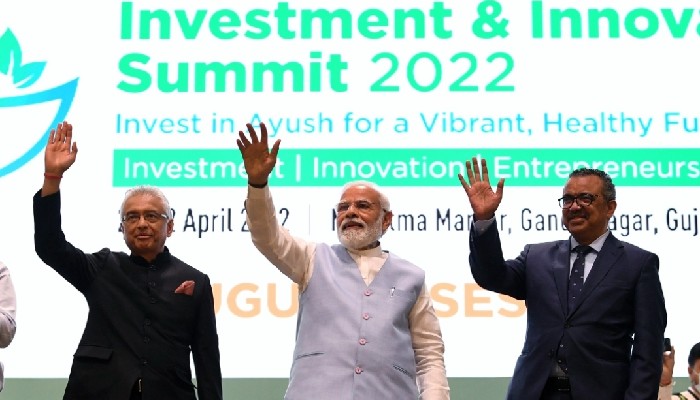India had rejected a clause calling for a ‘phase out’ of coal-fired power
Glasgow Climate talks could see a silver line in their complex and intricate wrap up as India pledged to ‘phase down’ rather than ‘phase out’ coal. This has made several climate experts and media outlets as well to change their perception about India’s stand on climate change.
As per The Guardian, while it was China that reportedly pushed hard for a softening of the language over coal in the final negotiations, it was India’s Environment Minister, Bhupender Yadav, who read out a new version of the Glasgow pact.
But the daily said among many climate experts, the consensus was that India was not the villain it was being portrayed as.
“Many said the criticism of India’s position highlights how the issues of climate injustice are still rife, with developing countries expected to meet the same commitments as wealthy developed countries, who have historically emitted the most and also have access to vast financial resources and alternatives such as natural gas,” the British daily said.
India, backed by China and other coal-dependent developing nations had on Saturday rejected a clause calling for a ‘phase out’ of coal-fired power, and the text was changed to ‘phase down’.
Sunil Dahiya, analyst at the Centre for Research on Energy and Clean Air, said that India setting a net zero target, and agreeing to phase down coal is surely a step forward from where it was in terms of national policies and commitments before arriving at COP this year.
Dahiya said it was more important for India to commit to a date when it would hit peak coal, rather than being pressured into pledges to end the use of coal on the same timeline as the west.
According to Ulka Kelkar, the director of climate at the World Resources Institute in India, India’s intervention reflects its lack of choices – the country does not have significant oil and gas reserves and spends more than $100bn (£75bn) each year to import these, and nuclear power accounts for less than 2% of its electricity capacity.
Highly critical of those who had criticized India for phrasing of the agreement, Brandon Wu, the director of policy and campaigns at Action Aid, like others, pointed out that the agreement had only targeted coal while avoiding mention of other fossil fuels such as natural gas and oil, which are used in abundance by the US and European countries.
Describing India’s intervention as a ‘reasonable response’ Wu was quoted in The Guardian’s report, “By focusing only on coal and not including oil and gas, this text would disproportionately impact certain developing countries like China and India. India said in negotiations that all fossil fuels must be phased down, in an equitable manner.”
Rahul Tongia, a senior fellow at the Centre for Social and Economic Progress, said the concern for countries like India was that by committing to a phase out of coal, they would be expected to do it on the same timeline as countries in the west.
“But if all countries are shifting away from coal because they happen to have a supply of natural gas, that’s very asymmetrical and doesn’t help the environment enough,” Tongia told The Guardian.
At Cop26, Tongia described coal as ‘low-hanging fruit’ that was easy to seize on because of its filthy reputation, and that more graded and nuanced targets for all fossil fuels were necessary.
To read full text:
 Contact Us
Contact Us  Subscribe Us
Subscribe Us









 Contact Us
Contact Us
 Subscribe
Subscribe
 News Letter
News Letter

